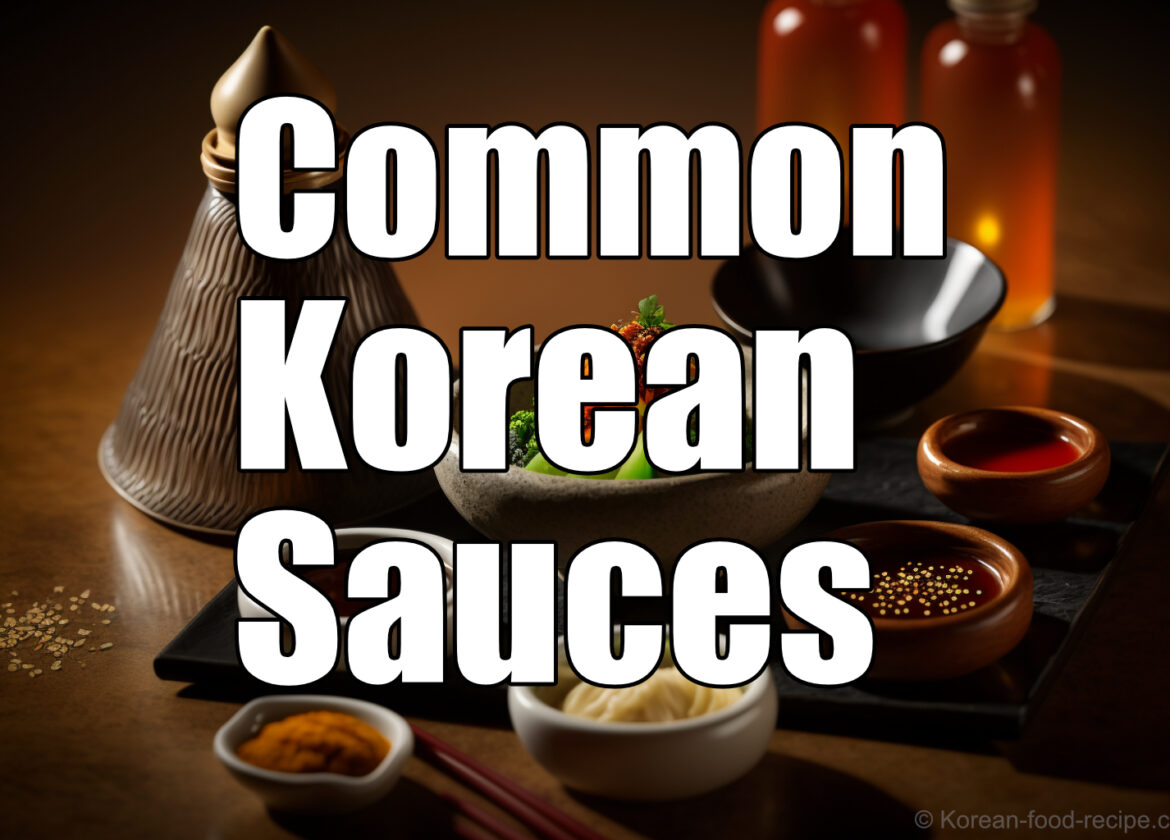What Sauces Are Used in Korean Food?
Gochujang: Gochujang is a thick and spicy Korean chili paste made with fermented soybeans, red chili peppers (gochugaru), and glutinous rice. It has a deep red color and a spicy flavor that is perfect for adding heat to Korean recipes. Gochujang is the iconic sauce in Korean cooking, and likely the sauce you’re looking for. It’s used in dishes like bibimbap, tteokbokki, and jajangmyeon.
Soy sauce: Soy sauce is a staple in Korean cooking and is used to add saltiness and depth to dishes. Soy sauce is typically made with fermented soybeans, wheat, water, and salt and has a rich, dark color and a slightly sweet flavor. Soy sauce is used in marinades and sauces, and it is also used as a condiment for dipping sauces.
Sesame oil: Sesame oil is a flavorful oil that is made from toasted sesame seeds and is commonly used in Korean cooking. It has a rich, nutty flavor and a sweet aroma that is perfect for adding depth and flavor.
Rice vinegar: Rice vinegar is light and mild vinegar that is made from fermented rice. It has a sweet and tangy flavor that is perfect for adding a touch of acidity to your meal. Rice vinegar is used in marinades and sauces, and sometimes as a dipping sauce.
A Good Sauce Makes The Meal
Sauces are an integral part of Korean cuisine, adding flavor, depth, and complexity to dishes. Whether you’re enjoying a bowl of kimchi made with a spicy sauce or a bowl of japchae noodles coated in a sweet and savory glaze, sauces play a key role in elevating the flavor and cohesion of Korean food.
One of the things that make Korean food so delicious and satisfying is the abundance of sauces that are used. From the spicy gochujang sauce used in bibimbap to the sweet and savory soy-based sauce used in japchae recipes, sauces add depth and complexity to Korean dishes.
However sauces aren’t just about flavor, they play an important role in health. Many Korean sauces are made from fermented ingredients, which are rich in probiotics and other beneficial nutrients. Fermented sauces like gochujang and doenjang are not only delicious, but also offer improved digestion, a stronger immune system, and a lower risk of chronic diseases.
The next time you sit down to enjoy a bowl of Korean food, don’t forget the sauce! Whether you’re making your own japchae recipe at home or enjoying some gamjajeon at a Korean restaurant, be sure to check out the benefits of a tasty Korean sauce.






